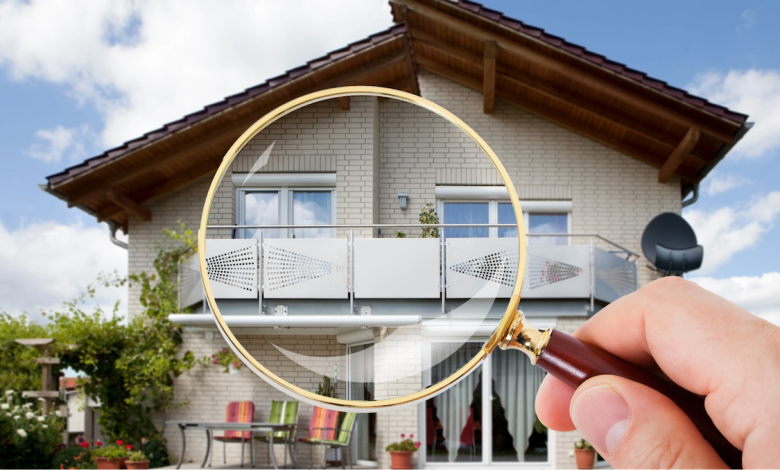How To Conduct A Home Inspection In Phnom Penh?

A home inspection consists of a thorough evaluation of a home’s structure, construction, and systems; this includes roofs, plumbing, electrical, air conditioning, and heating systems. The inspection can also identify any possible health and safety issues, such as mold or asbestos. The inspection report will point out any areas of concern so that the seller can address them and make any necessary repairs. Doing so will help the seller secure a better price and a smoother sale.
An inspection report may detail anything from major structural flaws that lower a home’s value to tiny cosmetic problems. If you are looking for properties in Phnom Penh, you can take IPS Cambodia’s help. They offer the best real estate solutions.
Let’s see how you can conduct a home inspection in Phnom Penh.
Decide How You Want To Do A Home Inspection
There are many alternatives when determining how to conduct a house inspection. You can perform the inspection yourself, hire a qualified home inspector, or combine the two.
- Conducting a comprehensive study and examination is crucial if you decide to handle it yourself. Have a list of things to look out for, such as indications of water damage, structural difficulties, and electrical issues.
- Hiring a professional home inspector can provide a more thorough report and peace of mind. It’s crucial to pick a trustworthy inspector and request references.
- A DIY and professional inspection can offer a reasonable cost and peace of mind. Therefore, doing your inspection before submitting an offer on the property is usually preferable. Once the sellers have accepted your offer, you should contact a qualified inspector to inspect the house and ensure no expensive repairs are required.
Check The Inspector’s Credentials
- Ensure an inspector has expertise assessing properties similar to the one you intend to buy and that their licence is current before you employ them.
- Find out how often and for how long the inspector has performed residential home inspections. Find out if the sizes and locations of those residences are comparable to yours.
- Inquire of the inspector regarding the length of the inspection and the areas of the house that will be covered.
Attend The Inspection
Make plans to attend the inspection and schedule it for a time when you’ll be able to. As a Homebuyer, you must attend a home inspection since it gives you essential details regarding the state of the property you are considering investing in. Being present allows you to ask questions, voice concerns, and better grasp any problems that must be resolved before the sale is finalised.
- Together with the inspector, go through the house and ask them to describe what they notice.
- Buyers should check for significant issues during a house inspection, such as structural damage, water damage, and electrical difficulties. The roof, HVAC system, plumbing, and appliances should all be carefully examined.
- Ask the inspector to clarify any damage or necessary repairs if they point out anything you need help understanding.

Line Up Additional Inspections
General licenced home inspectors may or may not investigate specific systems or problems. You should call in a professional to evaluate the damage if any potential issues are discovered.
- Termites are typically not thoroughly inspected during standard home inspections. You should consult a specialist in wood-destroying insects if your general inspection found evidence of termite damage.
- Additionally, certain areas of the property, such as separate buildings or swimming pools, may not be examined by licenced inspectors.
- Furthermore, general inspectors only examine what is readily visible. Any indication of apparent damage can indicate a more significant issue underneath or within the walls.
- The attic, the roof’s peak, and the crawl spaces beneath the house are among the difficult-to-access places where inspectors will investigate.
- Sprinkler systems installed underground often need to be inspected by inspectors.
Documenting Findings
- You should document all your findings to avoid missing anything while negotiating with the seller about the damages.
- After thoroughly inspecting the home, your inspector will prepare a written report of their findings.
- You should also click the photos of damages as they can serve as proof.
- Ask the inspector to discuss the report with you and review all the points they have noted.
- A house inspection rarely gets a perfect result. An inspector might be able to estimate the age of a system and how long it might last.
Make Decisions Based On The Findings
Once you have all the findings from the inspection, the final step is to negotiate with the seller.
- If an issue is discovered, you can calculate all the repair costs and use that to bargain with the vendor to reduce the price to account for the expense of repairs.
- However, if the problem discovered is a big deal for you, it might be wise to leave the sale entirely, such as a significant structural issue or a pest infestation.
Conclusion
Planning carefully and paying attention to details are essential for a home inspection in Phnom Penh. Creating a checklist and hiring a qualified and highly skilled home inspector is critical. Making notes and taking pictures of any problems during the inspection is crucial. After the inspection, it’s vital to examine the results and base judgments on them.
IPS Cambodia can help you in every step, from finding a property to finding a reliable house inspector. Get in touch with them for more information.



